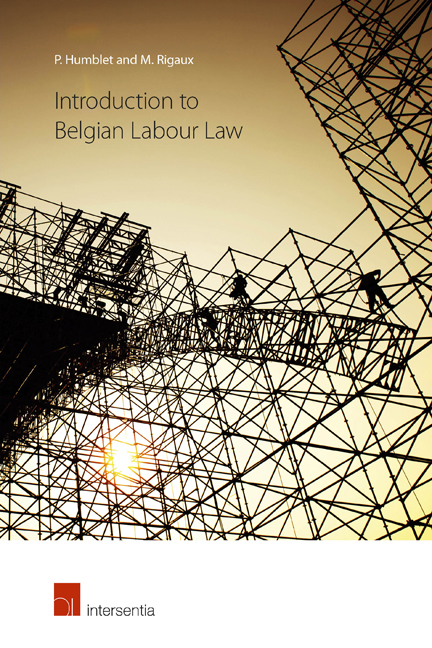Book contents
- Frontmatter
- Preface
- Contents
- List of Abbreviations
- PART I EMPLOYMENT LAW
- I THE CONTRACT OF EMPLOYMENT
- II CONCLUDING THE CONTRACT
- III EMPLOYMENT
- IV TERMINATION OF EMPLOYMENT
- V SPECIAL AND DEVIATING TYPES OF EMPLOYMENT CONTRACTS
- PART II INDUSTRIAL RELATIONS LAW
- I FREEDOM OF ASSOCIATION
- Chapter 1 Historical Overview
- Chapter 2 The Right to Organise
- II TRADE UNIONS AND EMPLOYERS’ ASSOCIATIONS
- III INSTRUMENTS FOR SOCIAL DIALOGUE
- IV FUNDS FOR SOCIAL SECURITY
- V INDUSTRIAL ACTION
- In Cauda
- General Bibliography
- E-addresses
Chapter 2 - The Right to Organise
from I - FREEDOM OF ASSOCIATION
Published online by Cambridge University Press: 13 December 2017
- Frontmatter
- Preface
- Contents
- List of Abbreviations
- PART I EMPLOYMENT LAW
- I THE CONTRACT OF EMPLOYMENT
- II CONCLUDING THE CONTRACT
- III EMPLOYMENT
- IV TERMINATION OF EMPLOYMENT
- V SPECIAL AND DEVIATING TYPES OF EMPLOYMENT CONTRACTS
- PART II INDUSTRIAL RELATIONS LAW
- I FREEDOM OF ASSOCIATION
- Chapter 1 Historical Overview
- Chapter 2 The Right to Organise
- II TRADE UNIONS AND EMPLOYERS’ ASSOCIATIONS
- III INSTRUMENTS FOR SOCIAL DIALOGUE
- IV FUNDS FOR SOCIAL SECURITY
- V INDUSTRIAL ACTION
- In Cauda
- General Bibliography
- E-addresses
Summary
SECTION 1. ARTICLE 27 OF THE CONSTITUTION
Article 27 of the Constitution provides that citizens have the right to enter into an association or partnership; this right cannot be subject to any preventative measures. In principle, it covers all social activities provided they do not breach public order and/or morality, and therefore also covers the right to set up a union or professional association.
SECTION 2. THE FREEDOM OF ASSOCIATION ACT OF 24 MAY 1921
The Freedom of Association Act of 24 May 1921 governs, firstly, the protection of the freedom of association, and secondly, the consequences of joining an association. Although general in scope and not confined to the right to set up a union, it is clear that the legislature of 1921 sought to recognise and regulate this freedom.
The law guarantees both positive and negative freedom of association.
Positive freedom of association grants persons the right to set up and join a professional association (Articles 1, 2 and 3). Negative freedom of association is a person's right not to join a professional association (Articles 1, 3 and 4).
The principle that no one can be forced to join an association is a public order issue. The contracting parties cannot relinquish this right, either by individual or by collective consensus.
Any individual or collective agreement containing a clause breaching this principle is regarded as void.
In addition, the legislature imposed a penalty under criminal law for violating freedom of association, in this case the right to join a union.
Any person found guilty of forcing people to join, or preventing them from joining an association through acts of violence, threats or assault, or by threatening them with dismissal or damage to their family, person or assets (Article 3), is punishable by prison sentences of eight days to one month and a fine of € 50 to € 500. The same penalty is imposed on all those who maliciously and purposefully violate the freedom of association by subjecting the conclusion, execution or continued existence of an employment or service contract to affiliation or non affiliation of a professional association (Article 4).
- Type
- Chapter
- Information
- Introduction to Belgian Labour Law , pp. 179 - 180Publisher: IntersentiaPrint publication year: 2016

